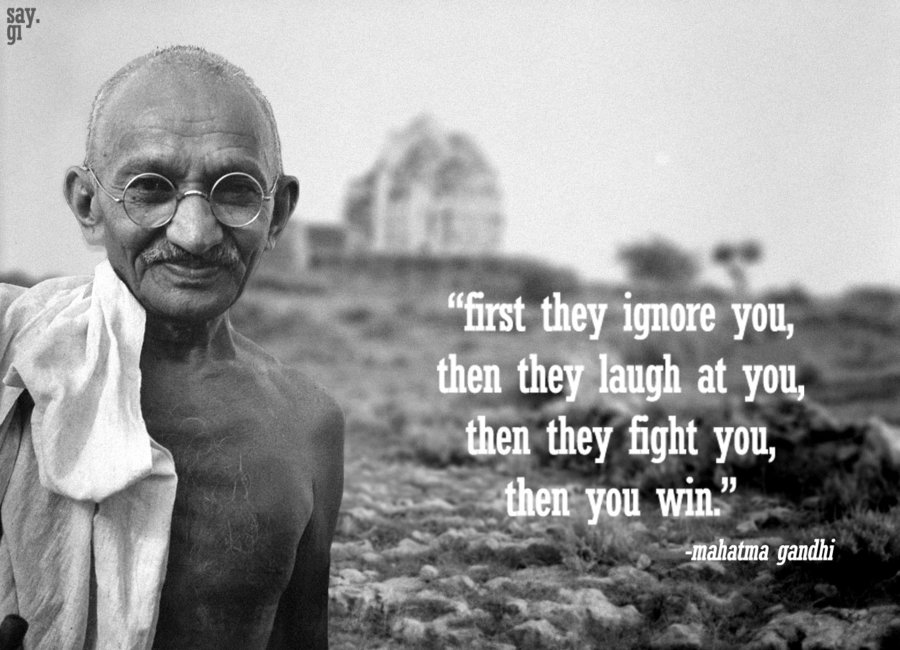
Two things constantly call to my heart—yoga and shaping society—what you might call politics or political engagement. So let’s talk about yoga and politics, but first a snapshot of my interest in politics.
My political journey began early—I was elected student rep on the Board of Trustees in high school. At university, I initially aimed to become a diplomat, studying History, Political Science, Economics, and Mandarin, before dropping out in my second year. I later completed journalism studies instead. (Loooooong story…)
In my early 30s, I landed a job as a speechwriter for the Ministry of Social Development, writing speeches for Members of Parliament. A few years ago (mid-40s) I ran for the local community board tip-toeing into local politics.
The pull toward politics continues to intensify, and while I’m not sure how to fully respond yet, I feel the call more strongly than ever.
Today, I want to explore the relationship between yoga and politics and delve into the lives of yogis who became politically engaged. Here’s what I discovered, with some assistance from ChatGPT.
The Entwinement of Yoga and Politics—What’s Our Responsibility as Yogis?
Walking the path of yoga means keeping our eyes wide open. Viveka, or clear discernment, is foundational. The Bhagavad Gītā makes this unmistakably clear: the yogi is not exempt from action but is instead obligated to act without attachment, for the sake of the world.
Krishna tells Arjuna, “If I did not engage in action, these worlds would perish” (BhG 3.24, trans. Sargeant). The yogi’s duty is to act, but without attachment, and to promote collective welfare, as Krishna urges: “Perform action, desiring the welfare of the world.”
This isn’t just a metaphor—it’s a direct mandate. To claim “spiritual detachment” as an excuse to avoid engaging in the world is a betrayal of yoga’s deepest calling.
The yogi’s task isn’t to transcend society but to embody awakened awareness within it, often disrupting injustice from the inside out.
Patience and non-attachment are essential, but they don’t mean apathy. Patanjali’s Yoga Sutras articulate the yamas (ethical restraints), including ahimsa (non-violence), satya (truthfulness), and aparigraha (non-possessiveness), offering a framework for political engagement that challenges systems of oppression and dishonesty. (See Ghandi, below).
In Sutra 2.35, Patanjali states, “In the presence of one firmly established in non-violence, all hostility ceases.” This suggests that the yogi’s commitment to non-violence can have transformative societal effects, extending beyond personal practice.
Similarly, the Shanti Parva of the Mahabharata emphasizes that righteousness must be actively upheld through right action, not through passive withdrawal.
Tantric texts take this a step further, calling for radical embodiment.
The Kālacakra Tantra states, “All beings are of one taste,” implying that social hierarchies—like caste or class—are artificial constructs meant to be dissolved, not upheld. This cosmopolitical view recognizes that inner liberation must reflect in outer equity. It also suggests that yogis have a responsibility to recognize the divine in all beings, regardless of their social status – or sexual orientation, race, class, or self-identification.
While the concept of equality may feel natural to us today, it was not when the Kālacakra was written in the 10th or 11th century. This was radical. And while many of us intellectually agree with “equality for all,” directly recognizing the essence of divinity in every human being is something else entirely.
To recognize the Self in all is to challenge the structures that obscure that truth in others. it invites us to step out of Othering – even when (especially when) we disagree with each other’s view, perspective or politics.
In the Recognition Sutras (Sutra 14, trans. Wallis), the yogi is asked to digest the full spectrum of life—pleasure, pain, and politics—into the fire of awareness. This digestion is not passive; it’s alchemical. All aspects of life must be met fully with love.
As Sri Aurobindo later interpreted these traditions, spiritual practice is not about escaping worldly responsibilities but transforming consciousness to better fulfill them.
We are called to maintain inner equanimity while striving for dharma (righteousness) in society—guided by discernment (viveka), not by self-interest or ideological attachment.
This means that our responsibility as yogis is not just about personal evolution—it’s about collective liberation. We do our practice for the well-being of all.
it’s not about performative wokeness. Or virtue-signaling. But courageous, conscious action rooted in deep stillness.
Yogic politics isn’t about left or right; it’s about truth (satya), non-harming (ahimsa), and fierce compassion (karuṇā).
As yogis, we are developing the ability to be vessels of embodied wisdom, walking through a world on fire.
The question is not whether to get involved, but how to do so without getting burned—and how to offer that fire as light.
Right now, I’m sitting with that question—how to bring everything yoga has gifted me into the world in a more dynamic, material, and influential way.
I asked ChatGPT for a list of actions I could take to embody this integration of yoga and politics. Here’s what I was given (and edited).
Living the entwinement of yoga and politics isn’t about slapping a protest sticker on your mat—it’s about walking your talk in the world. Here’s how:
🔥 1. Get Intimate with Injustice
Don’t turn away from suffering. Tantra is about devouring reality, not bypassing it. Read, listen, feel. Educate yourself on systems of oppression—colonialism, racism, economic disparity—and examine where they live in your body, beliefs, and privileges. As the Recognition Sutras teaches: “Whatever arises is suitable for contemplation.”
🗣 2. Use Your Voice—Loudly, Wisely
Whether you’re teaching, writing, parenting, or just breathing—speak truth. In the Bhagavad Gītā, Krishna says satya (truth) should be spoken “in a manner that is pleasing and beneficial” (17.15). That doesn’t mean soft—it means skillful. The yogi doesn’t stay silent when truth is being bulldozed. This became a practice for me in 2010 and it revolutionized my life. Truth, no matter what.
🪔 3. Make Your Practice Political
Dedicate your practice to the liberation of all beings, not just your own nervous system. Let your breath anchor you in awareness so you can act. Don’t just do yoga—become yoga in the world. If your sādhanā doesn’t ripple out as love and justice, you’re just doing spiritual gymnastics. This is part of the Prayer for Pure Motive which I say when I practice and teach.
🛠 4. Support Movement Builders
Put your money, time, or platform behind grassroots organizers. Karma Yoga 101: “The yogi acts without attachment, for the good of the world” (BhG 3.25). Whether it’s environmental activism, indigenous sovereignty, or food justice, support those doing the hard, embodied work of social transformation. You don’t have to lead – just support those who do.
🧘🏽♀️ 5. Teach the Whole Practice
If you’re a yoga teacher, stop watering it down. Teach about the yamas and niyamas, the roots of yogic ethics. Talk about karma not as “what goes around comes around” but as interdependent consequence. Teach that liberation is collective—because no one gets free alone. And if you need support with this, get in touch with me.
📿 6. Live Simply, Consume Consciously
A yogi sees through the illusion of endless consumption. Aparigraha (non-hoarding) and santosha (contentment) are revolutionary acts in a capitalist culture. Buy less. Buy better. Support local and regenerative economies. Vote with your wallet, not just your ballot.
💬 7. Interrupt Harm—Especially Where It’s “Nice”
Spiritual spaces can be breeding grounds for passive aggression, gaslighting, and spiritual bypass. If you’re the yogi in the room, be the disruptor with heart. Call out racism in a yoga studio. Challenge cultural appropriation. Bring awareness where people want comfort.
🥾 8. Put Your Body Where Your Mouth Is
March. Show up. Stand with. Be on the ground when it matters, not just on social media. Yoga is union—not separation. Injustice anywhere is your asana too.
🕯 9. Stay Lit from the Inside
Do your inner work daily. Meditate, chant, breathe—not to escape, but to stay grounded so you can show up. A burnt-out activist is no help to anyone. Tapas, the fire of discipline, keeps your spiritual fire burning so your external action stays anchored.
🔱 10. Be Radically, Relentlessly Compassionate
As the Kālacakratantra and the Bodhisattva vows remind us: No being is left behind. Let your activism be fierce, yes—but let it also be soft. Compassion is not a weakness. It’s your sharpest weapon. And the most yogic one of all.
I’m going to keep referring to this list and use it for my accountability – I urge you to do the same thing.
Yoga and Politics Bonus List: 14 prominent yogis or spiritually awakened figures who got involved in politics—some directly, others through influence—and the marks they left on history.
These yogis demonstrate how spiritual practice can inform political engagement, often emphasizing ethical governance, non-violence, and social welfare as extensions of yogic principles.
🕉️ 1. Mahatma Gandhi (1869–1948)
Path: Karma Yoga & Ahimsa (non-violence), influenced by Jainism and Vedanta
Political Role: Leader of India’s independence movement
Method: Mass movement, ethical leadership, civil disobedience
Impact:
Turned Satyagraha into a weapon of mass liberation. His spiritual framework became political doctrine, shaping the future of nonviolent resistance across the globe.
🕉️ 2. B.K.S. Iyengar (1918–2014)
Path: Hatha Yoga & Iyengar Yoga
Political Role: Yoga teacher and advisor to political leaders
Method: Influencing education, public health policies, and promoting yoga
Impact:
B.K.S. Iyengar helped institutionalize yoga within India’s public health and educational systems. By advising leaders like Jawaharlal Nehru and serving on government committees, he positioned yoga as a valuable tool for personal and societal well-being, influencing generations of yoga practitioners and policy-makers.
🕉️ 3. Swami Ramdev (Baba Ramdev) (1965–Present)
Path: Hatha Yoga & Pranayama
Political Role: Yoga teacher, anti-corruption activist, political figure
Method: Mass movements, founding the Bharat Swabhiman Party, health campaigns
Impact:
Swami Ramdev has used yoga as a platform for political activism, launching anti-corruption campaigns and supporting political movements in India. His Patanjali Ayurved company has influenced economic policies, and his message about traditional Indian practices has reshaped conversations about health and governance in India.
🕉️ 4. Maharishi Mahesh Yogi (1918–2008)
Path: Transcendental Meditation & Consciousness-based Education
Political Role: Founder of the Transcendental Meditation movement, political advisor
Method: Establishing the Natural Law Party, promoting “yogic flying” for social change
Impact:
Maharishi Mahesh Yogi’s influence extended globally as he introduced Transcendental Meditation to the world. His political ventures, particularly the establishment of the Natural Law Party, sought to influence global policies through consciousness-based approaches, aiming to foster peace and societal well-being.
🕉️ 5. Swami Agnivesh (1939–2020)
Path: Karma Yoga & Social Activism
Political Role: Spiritual leader, social activist, former politician
Method: Fighting against bonded labor, child labor, and religious intolerance
Impact:
Swami Agnivesh integrated his yogic principles with political activism, focusing on human rights, child labor, and social justice. His work transcended spirituality, influencing political discourse and policy on issues of equality and human dignity in India.
🕉️ 6. Mata Amritanandamayi (1953–Present)
Path: Bhakti Yoga & Humanitarian Action
Political Role: Spiritual leader, advocate for social justice, women’s rights
Method: Humanitarian initiatives, environmental advocacy, social reform
Impact:
Known as the “Hugging Saint,” Amma’s humanitarian work spans globally. She advocates for rural development, women’s empowerment, and environmental consciousness, using her immense following to influence public policy and raise awareness about the challenges facing marginalized communities.
🕉️ 7. Yogendra Yadav (1970–Present)
Path: Political Science & Yogic Principles
Political Role: Political scientist, activist, founder of Swaraj India party
Method: Ethical politics, promoting spiritual values in governance
Impact:
Yogendra Yadav combines his political expertise with yogic values to create a movement for ethical politics. His focus on transparency, accountability, and spiritual wisdom in leadership aims to reshape India’s political landscape, encouraging a politics of truth and compassion.
🕉️ 8. T.K.V. Desikachar (1938–2016)
Path: Viniyoga & Yoga Philosophy
Political Role: Yoga teacher to influential political figures
Method: Teaching yoga to leaders, promoting inner clarity for public service
Impact:
T.K.V. Desikachar’s teachings on yoga and meditation influenced numerous political figures, including India’s former president. His focus on personalized, therapeutic yoga aimed at creating balanced, ethical leadership that could guide public affairs with wisdom and integrity.
🕉️ 9. Dhirendra Brahmachari (1924–1995)
Path: Hatha Yoga & Spiritual Leadership
Political Role: Personal yoga instructor to Prime Minister Indira Gandhi
Method: Influence within political circles, fostering connections between yoga and governance
Impact:
Dhirendra Brahmachari wielded significant influence during Indira Gandhi’s tenure, shaping some aspects of government policy and political decisions. His position as the personal yoga teacher to the Prime Minister allowed him a unique role in influencing both personal and public matters.
🕉️ 10. Vimala Thakar (1938–2009)
Path: Jnana Yoga & Karma Yoga, social activism
Political Role: Spiritual teacher and social activist
Method: Public speaking, workshops, and advocacy for social justice
Impact:
Vimala Thakar integrated deep spiritual practice with active social engagement, particularly focused on women’s rights, education, and equality. Her teachings on inner transformation and social responsibility influenced many to confront societal injustices, especially in India. She championed self-awareness as a catalyst for social change.
🕉️ 11. Sarada Devi (1853–1920)
Path: Bhakti Yoga & Karma Yoga, spiritual leadership
Political Role: Spiritual partner to Sri Ramakrishna, social reformer
Method: Promoted education, upliftment of women, and social equality
Impact:
Sarada Devi played a significant role in advancing women’s education and empowerment in India. Through her teachings on compassion and equality, she shaped early 20th-century social and political movements, fostering progressive values within the Ramakrishna Mission and beyond. Her work influenced both spiritual and political reforms in India.
🕉️ 12. Irene Pappas (Contemporary)
Path: Hatha Yoga & Conscious Activism
Political Role: Yoga teacher and social activist
Method: Founding the Global Peace Yoga Alliance, environmentalism, gender equality
Impact:
Irene Pappas merges yogic practice with active global advocacy. She’s worked to integrate environmental consciousness and human rights into political dialogue, emphasizing the interconnectedness of all beings. Through her organization, she promotes sustainable policies worldwide, creating a space where yoga meets global political action for a more compassionate world.
🕉️ 13. Neem Karoli Baba (1900–1973) (Indirect Influence)
Path: Bhakti Yoga
Political Role: None directly
Method: Cultural osmosis, disciples in high places
Impact:
His devotees helped seed the West’s spiritual-political fusion. Through Ram Dass and others, his presence indirectly influenced activism, psychedelia, and even Silicon Valley.
🕉️ 14. Thich Nhat Hanh (1926–2022)
Path: Zen Buddhism
Political Role: Peace activist
Method: Mindful resistance, interbeing diplomacy
Impact:
Brought engaged Buddhism to the front lines. Influenced global leaders, marched with Dr. King, and turned mindfulness into a political act of presence.
These yogis prove that yoga and politics DO mix, and that yogis can have an important influence on shaping society.



